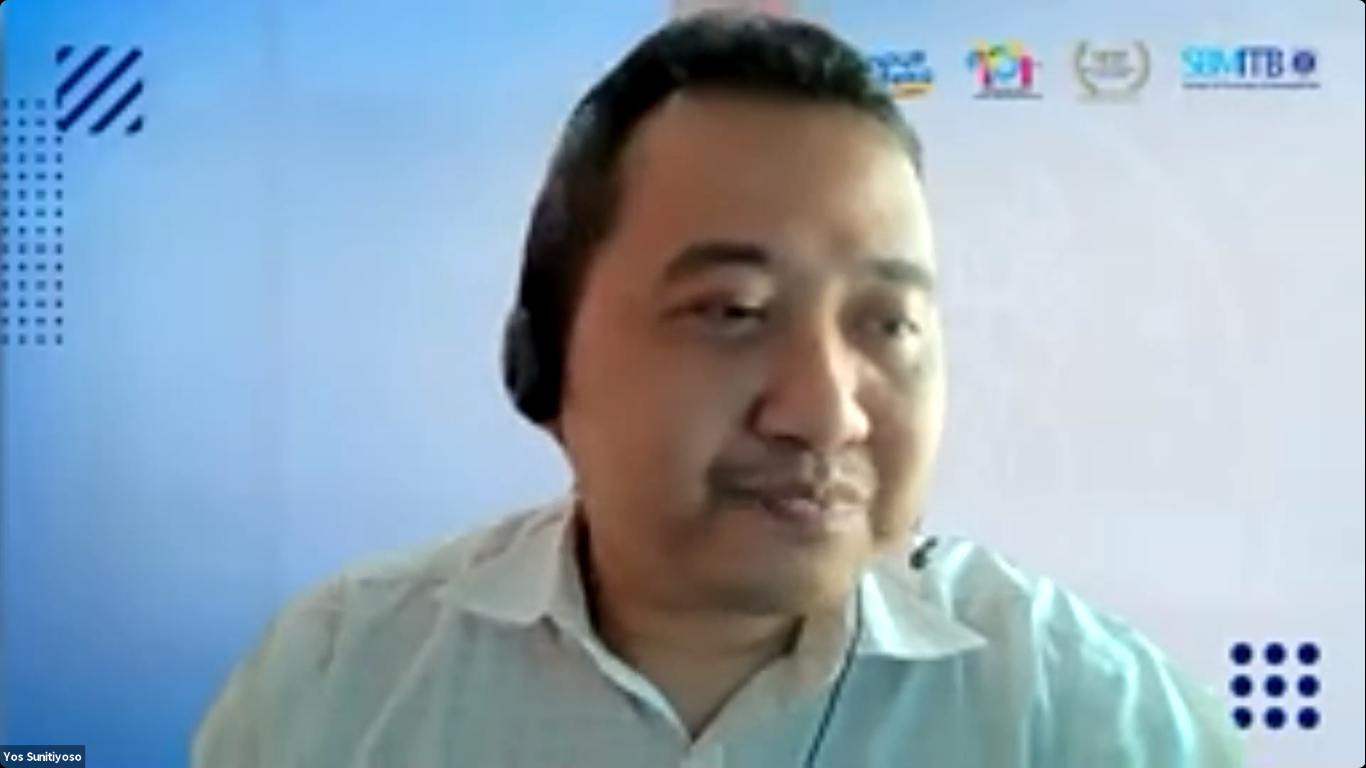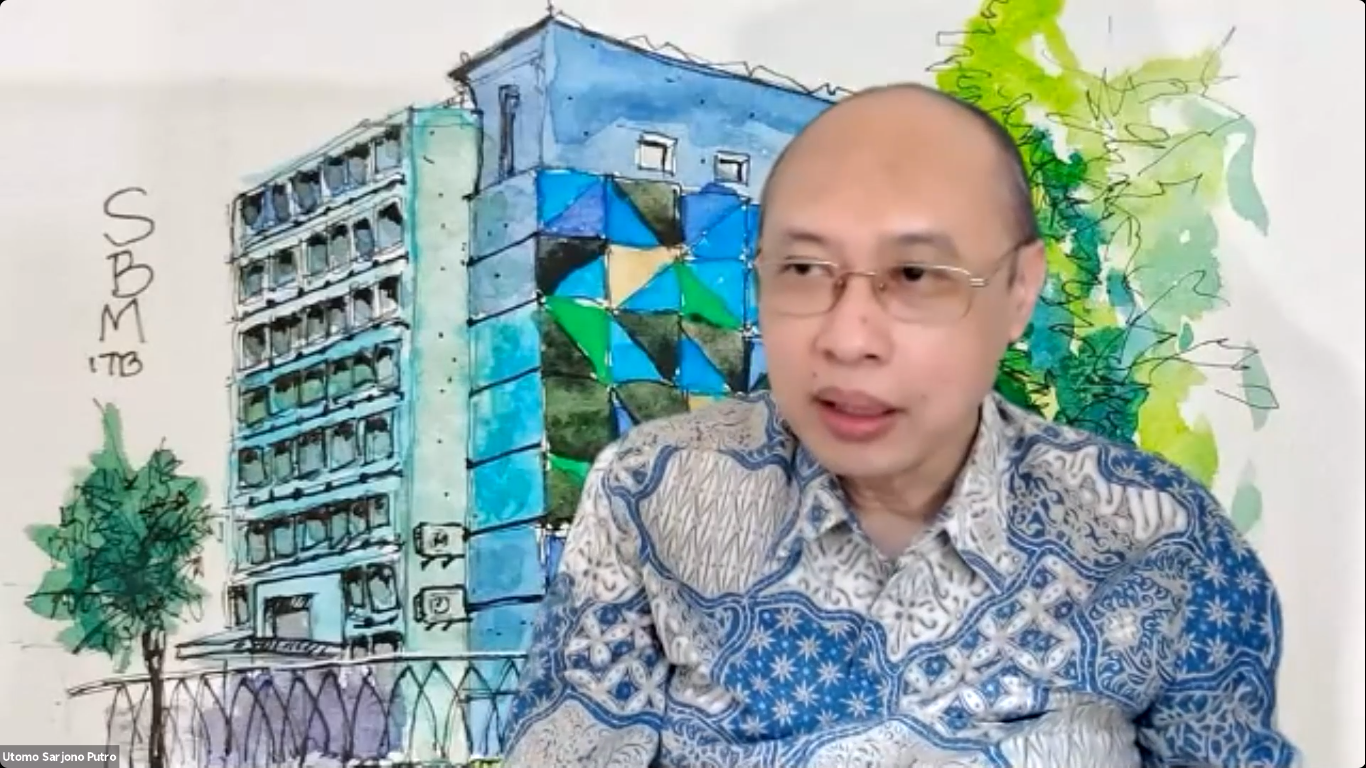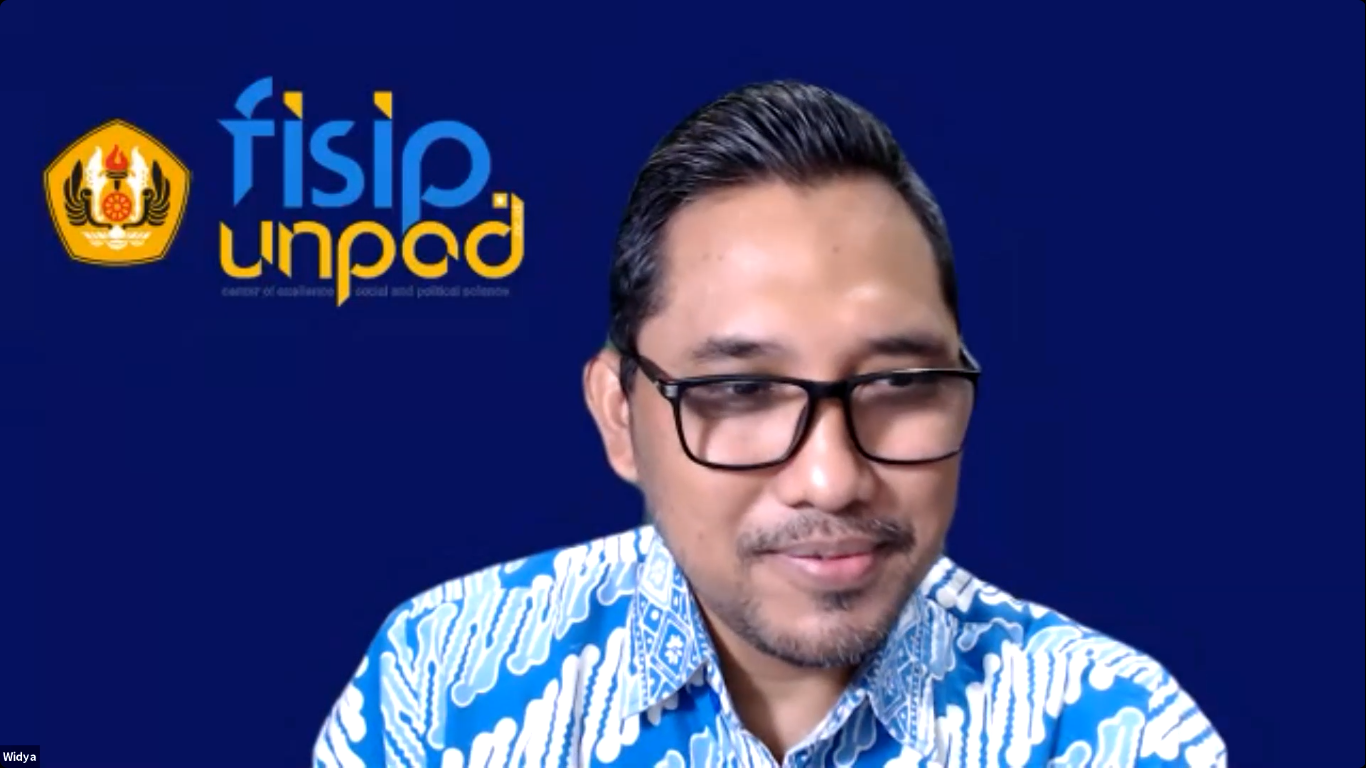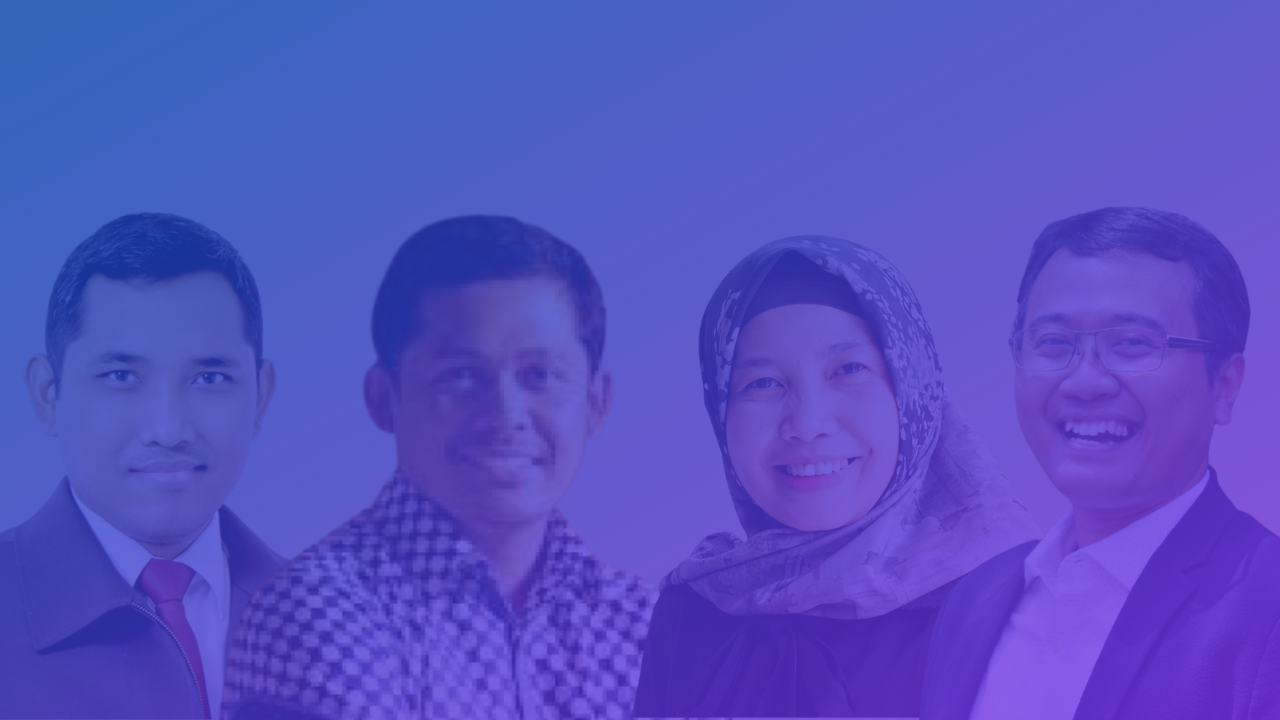Research is critical in the academic world in Indonesia. Therefore, collaboration is needed from every party playing a role in the field.
DMSN Talk Series 2021 held a webinar with the theme of Research Program Co-Creation to support MBKM SBM ITB X UNPAD as a form of collaboration between MBKM SBM ITB and UNPAD, Tuesday on Tuesday (29/6/2021). It aims to discuss collaboration opportunities concerning educational development in Indonesia, especially in research.
 Yos Sunitiyoso, ST., M.Eng., Ph.D., as the implementer of DMSN Talk Series 2021, hoped the webinar establishes cooperation between SBM ITB and UNPAD: student exchange, cooperation among lecturers in research, internships, community empowerment, and entrepreneurship.
Yos Sunitiyoso, ST., M.Eng., Ph.D., as the implementer of DMSN Talk Series 2021, hoped the webinar establishes cooperation between SBM ITB and UNPAD: student exchange, cooperation among lecturers in research, internships, community empowerment, and entrepreneurship.
Utomo Sarjono Putro, M.Eng, the Dean of SBM ITB, added that the discussion would result in collaborations that are certainly in line with the rector’s motto, which is locally relevant and globally respected.

“With this collaboration, we can see the existing problems and involve many sectors. Therefore, cooperation between sectors is vital to solving all problems. “It is possible to conduct joint supervision through MSM and FISIP. If that project runs well, we can start the same project for SBM students,” said Utomo.

This webinar started with a presentation from Dr. R. Widya Setiabudi Sumadinata, S.IP., S.Si., M.T., M.Si., the Dean of Social and Political Sciences Faculty, Universitas Padjadjaran. He explained a brief description of what has been done by FISIP UNPAD as a miniature of Padjadjaran University in the field of humanities. FISIP UNPAD has eight departments, 24 courses, eight undergraduate courses, eight vocational programs, and 12 postgraduate programs. Some research has been conducted both domestically and internationally. Several corporations have also been done, including apprenticeships and lecturer exchanges.
Next, SBM ITB, represented by Santi Novani, Ph.D., a lecturer at KK DMSN SBM ITB, also conveyed several items for collaboration materials. She explained the research roadmap and collaboration opportunities that have been done at SBM ITB.
“There are four targeted areas for research: transportation and energy engineering, information and communication technology, infrastructure and disasters, and food and health. The focuses of research are innovation, entrepreneurship, and leadership,” said Santi.
For KK DMSN, there are five pillars used: decision making, social simulation, negotiation, service system science, and business analytics. However, the focus in this collaboration is the pillar of service system science on how educational actors try to create a medium of collaboration and communication between stakeholders by developing tools and methods related to decision-making based on the thinking and approach systems.
The webinar was then continued with the presentation from Prof. Yudi Azis S.Si. S.E., S.Sos, M.T., Ph.D., the Dean of the Faculty of Economics and Business Universitas Padjadjaran. He said that the MBKM program itself still focused on undergraduate programs, such as accounting, economics, and business. So, there are contexts that can be used as collaboration materials, such as language in the Sharia economy, as Indonesia is currently heading to a halal ecosystem.
There is a fairly new and attractive context, which is the digital business context. This context is relevant for the cooperation between lectures and KK DMSN, such as big data topics and other digital businesses.
“Then, there is the BUMN center of excellence in UNPAD used as a data center to develop SOEs, such as Pertamina which develops several improvement programs, several other industries discussed in the SOE center of excellence,” said Prof. Yudi Azis S.Si. S.E., S.Sos, M.T., Ph.D.
After a brief presentation from each university, the webinar was continued with informal discussions and started by Ida Widianingsih, S.IP., M.A., Ph.D., the Vice Dean of FISIP UNPAD. She said that common studies could be reviewed and follow-up together, such as the women entrepreneurship theme. This theme is discussed in a round table discussion to strengthen the network between Indonesian and Australian women leaders.
In addition, there are some interesting discussions between SBM ITB and FISIP UNPAD lecturers. This discussion resulted in several outputs that can be used as collaboration ideas between SBM ITB and UNPAD. Collaboration can be in the form of sharing resources to develop students’ knowledge, develop and exchange information, and methodologies for developing creative industries in Indonesia.
This collaboration can also be done by concerning joint supervision (Doctoral students supervision), joint workshops (workshops related to modeling for young lecturers to complete the research process of deeper analysis), and direct research modeling, joint training, and joint research seminars.
Finally, another possible collaboration is community service, which aims to develop the community through training conducted by lecturers of SBM ITB and UNPAD by combining information and knowledge mastered by each lecturer.
“In addition, community service can be done by exporting the needs of stakeholders. From the laboratory side, we can manage the information of a business, such as social media, machine learning, and other digital business aspects,” said Manahan Siallagan, S.Si, MT, M.Sc, Dr. Eng.
Written by Student Reporter (Hutahaean Andina Putri Melinda Gamaliel, Management 2021)




